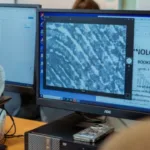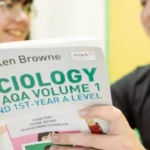
Philosophy & Ethics
Philosophy & Ethics involves learning about the Philosophy of Religion and Moral Philosophy (Ethics).
Philosophy & Ethics A Level
You will learn to critically analyse and assess evidence and arguments, engage in coherent debate and discussion, to construct cogent arguments and formulate your own conclusions on contentious issues. Philosophy & Ethics will train you to read critically, analyse and evaluate arguments, discern hidden assumptions, and construct sound and valid arguments, expressing yourself clearly and precisely in both speech and writing.
What does the course involve?
You will consider some of the classic theories of morality and apply them to modern ethical issues such as:
- Medical ethics.
- Sexual ethics.
- Immigration.
- Capital punishment.
- Animal experimentation.
- Nuclear weaponry.
You will question whether we have free will or whether our lives are predetermined and the implications this has for moral responsibility.
You will also study:
- Religious figures, sacred texts and practices of Christianity, examining the nature of the Christian God.
- Christian diversity in festivals such as Christmas and Easter.
- Religious concepts such as the Trinity and Atonement.
- Christian religious life and social developments such as Liberation and Feminist Theology.
Philosophy & Ethics will train you to read critically, analyse and assess arguments, discern hidden assumptions and construct sound and valid arguments, expressing yourself clearly and precisely in both speech and writing.
Assessment
Qualification
A Level
Awarding Body
Eduqas
Entry Requirements
You do not need any previous experience of the subject, but you will need:
- Grade 5 / B across almost all GCSE subjects, particularly in English Language and English Literature and any other essay writing subjects (if taken) such as History or Religious Studies.
You will also need:
- The ability to be challenged and cope with difficult concepts.
- To be willing to engage in discussion, accepting new ideas and ways of thinking.
- To be able to write extensively and enjoy reading.
- To work hard both inside and outside lessons and be prepared to study independently.
Trips
There will be opportunities to attend conferences and lectures delivered by subject specialists.
Career path
This course can help you excel in fields such as law, business, medicine, journalism, politics, human resource management, teaching and social work.
I enjoy the debates in class; it often gets quite passionate and there’s lots of different views but everyone’s good at respecting each other.
Imee
































































